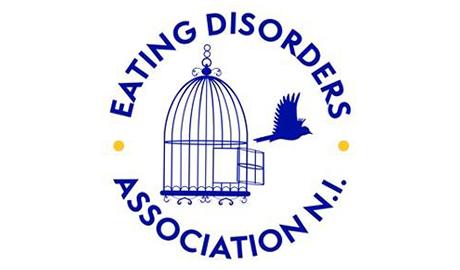Anorexia Nervosa
Anorexia nervosa, one of a group of serious eating disorders is a complex and critical psychological illness.
Anorexia nervosa can affect anyone regardless of age, gender and background. Anorexia nervosa is characterised by the person striving to maintain a low body weight, a weight which is not healthy for them to lead a balanced and healthy lifestyle. Anorexia nervosa affects all aspects of the person’s functioning and indeed life with significant physical, behavioural, psychological, emotional and social consequences.
It is important to remember that one person’s experience of anorexia nervosa will be quite different to another person’s experience and the illness is very much unique to the person.
Generally however, someone with anorexia nervosa, in an attempt to lose weight, will restrict their food intake by not eating enough and/or by cutting out certain food groups, only giving themselves permission to eat certain ‘safe’ foods. It is possible that they may also develop rituals and rules around their food intake. In addition to restricting their food intake, the person may use other eating disorder behaviours such as compulsive and obsessive over exercise and purging, in an attempt to compensate for any food they have eaten.
In addition to the behavioural aspects of the illness, individuals with anorexia nervosa often have a much distorted perception of themselves with an extreme body image disturbance. They will often see themselves as larger than what they really are and they will possess an extreme fear of gaining any weight. The person will become extremely focused and driven by food, weight and shape. Anorexia nervosa however, like the other eating disorders, is not primarily about food, weight and shape.
Beneath the surface and the outward manifestation of the illness, lays a person who is greatly struggling with their world. Anorexia nervosa is fundamentally a coping mechanism for dealing with emotions and feelings. It is the way in which the person has developed to deal with their world. It is important to remember that no-one chooses to develop an eating disorder rather it is a complex psychological illness that develops for a range of various reasons.
Signs and symptoms of anorexia nervosa may vary from person to person, below are some of the common signs
Behavioural Signs of Anorexia Nervosa
- Severely restricting food intake
- Rituals and rules around food and the way it is eaten
- Taking a prolonged amount of time to eat food
- Pushing food around the plate
- Hiding food
- Cutting out/limiting food groups – suddenly announcing a preference for veganism or vegetarianism may be a cause of concern
- Excessive fluid intake
- Lying about what they have eaten, claiming they have eaten earlier when they hadn’t for example
- Body checking
- Weighing themselves frequently
- Laxative abuse
- Over exercise
Psychological Signs of Anorexia Nervosa
- Obsessive thinking and preoccupation about their weight, shape and size
- Preoccupation with thinness and extreme fear of becoming fat
- Over critical of their bodies
- Intense fear of gaining weight
- Distorted body image – thinking they are fat even when they are severely underweight
- Low self-esteem
- Low-confidence
- Social isolation
- Low mood
- Rigid ‘black and white’ thinking
- Irritability and mood disturbance
- Perfectionism
- Anxiety around meal times
- Other mental illnesses such as obsessive compulsive disorder (OCD), depression and anxiety
Physical Signs Of Anorexia Nervosa
- Weight loss and low body weight
- Irregular or cessation of periods amongst females
- Lack of interest in sex
- Poor circulation
- Feeling cold all the time
- Constipation
- Bloating and fluid retention
- Difficulty sleeping
- Growth of fine, downy hair known as lanugo all over the body
Is Anorexia Nervosa serious?
Similar to all eating disorders, anorexia nervosa is an extremely serious illness. The seriousness of anorexia nervosa must be recognised as a complex mental health condition with potentially life threatening effects. Long term effects of anorexia can include, fertility problems, thinning of the bones (osteoporosis) and in extreme cases, organ failure.
Getting Help and Recovery
It is important to know that recovery from all eating disorders is ALWAYS possible, whatever stage the person is at in the illness, recovery is possible. The prognosis of anorexia nervosa is greatly improved with early and immediate access to treatment. It is very important therefore, if you are concerned that you have anorexia nervosa or you are worried someone you care about has anorexia nervosa, that you seek help and speak to someone immediately. The first step in getting help is usually by making an appointment with your G.P. Eating Disorders Association (N.I.) offer a range of services that may help you and your loved ones journey to recovery and can help guide you through the professional services that are available.
Do you need support? Contact Eating Disorders NI on 028 90235959. Or alternatively you can reach them by email.
Please register with Eating Disorders NI online support group service to avail of the monthly support group service.













